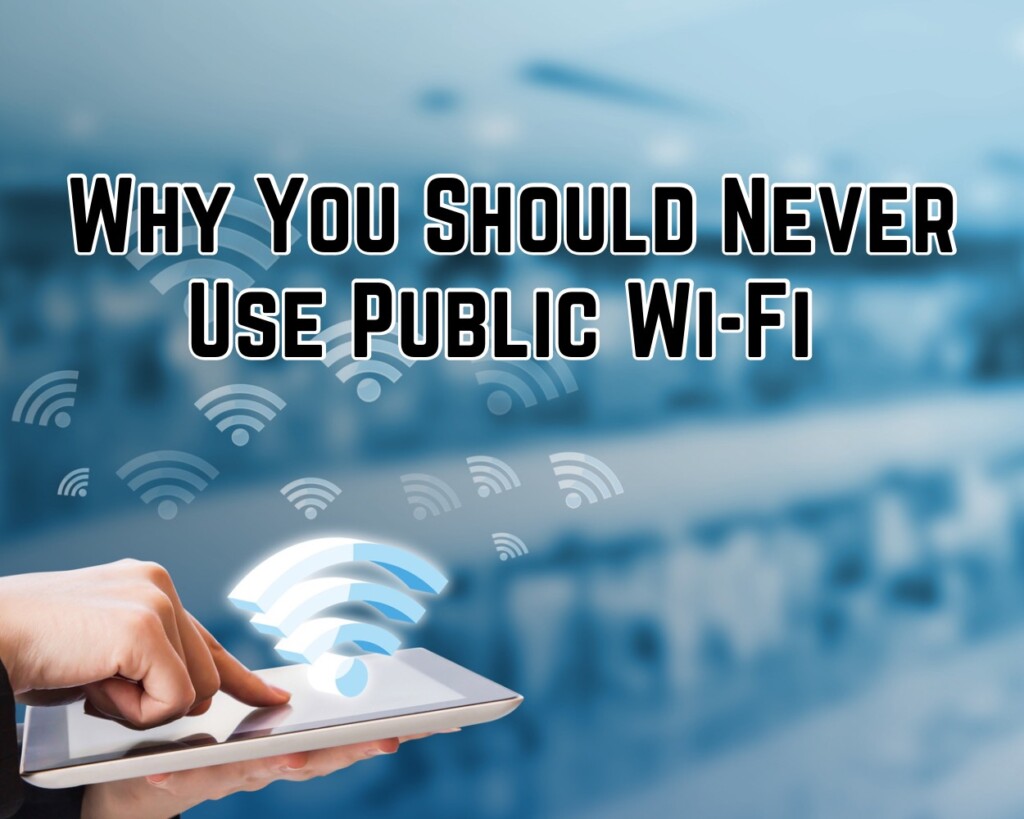The Allure of Free Wi-Fi
We’ve all been there: you’re at a coffee shop, airport, or hotel, and you see a free Wi-Fi network. The temptation to connect is strong, especially if you need to check your email or look something up. However, using public Wi-Fi comes with risks that many people overlook.
The Open Door: Security Risks
Public Wi-Fi networks are usually unsecured, meaning the data you send or receive is not encrypted. This makes it easy for hackers to intercept your information, potentially gaining access to your passwords, financial data, and more.

Man-in-the-Middle Attacks: The Invisible Threat
One common method hackers use on public Wi-Fi is the “Man-in-the-Middle” attack. In this scenario, the hacker intercepts data being sent between your device and the network, capturing sensitive information without you even knowing it.
Rogue Hotspots: The Deceptive Doppelganger
Hackers can set up rogue hotspots with names similar to legitimate public Wi-Fi networks. Unsuspecting users may connect to these rogue networks, giving hackers direct access to their devices.
Visit this website today to learn more about devices and other tech help!
Data Sniffing: The Silent Eavesdropper
Using specialized software, hackers can “sniff” out data packets being sent over an unsecured network. This can include anything from login credentials to personal messages.
Malware Distribution: A Hidden Danger
Hackers can exploit public Wi-Fi to distribute malware to connected devices. Once your device is infected, the malware can steal data, monitor your activities, or even control your device.
Legal Consequences: Shared Responsibility
If your device is used for illegal activities while connected to a public Wi-Fi, tracing it back to you could result in legal consequences. Even if you’re not the one engaging in illegal activities, the shared network puts you at risk.
Protecting Yourself: The Safest Course of Action
The best way to protect yourself is to avoid using public Wi-Fi for any activities that require logging in or transmitting sensitive information. If you absolutely must use public Wi-Fi, consider using a Virtual Private Network (VPN) to encrypt your data.
While the convenience of public Wi-Fi is tempting, the risks far outweigh the benefits. From potential hacking to legal ramifications, it’s a practice best avoided for the sake of your personal and digital security.
The Financial Toll: When Convenience Costs You
If a hacker gains access to your financial information through an unsecured public Wi-Fi network, the consequences could be devastating. From unauthorized transactions to identity theft, the financial toll can be significant and long-lasting.
Social Engineering: The Human Element
Hackers often use public Wi-Fi networks to engage in social engineering attacks. They may pose as customer service agents or tech support to trick you into revealing personal information. Always be cautious when receiving unsolicited messages or requests for information.
The Illusion of Safety: Password-Protected Networks
Even if a public Wi-Fi network requires a password, that doesn’t necessarily make it secure. Many people have access to the same password, and the network’s encryption may still be weak, leaving you vulnerable to attacks.
The Risk to Businesses: Not Just a Personal Problem
If you’re using a work device or accessing work-related information on public Wi-Fi, you’re not just putting yourself at risk—you’re also jeopardizing your company’s data. Many corporate cyber breaches have been traced back to employees using unsecured networks.
The Future of Public Wi-Fi: Is It Getting Safer?
While some advancements are being made in public Wi-Fi security, such as the introduction of more robust encryption methods, the risks are still prevalent. Until public Wi-Fi becomes universally secure, it’s best to err on the side of caution.
An Ounce of Prevention
The dangers of using public Wi-Fi should not be taken lightly. With the increasing sophistication of cyber attacks, the best defense is to avoid using public Wi-Fi for sensitive activities altogether. If you must connect, take all possible precautions, such as using a VPN and ensuring your device’s security software is up-to-date.
By being aware of the risks and taking proactive steps to protect yourself, you can significantly reduce the chances of falling victim to the hidden dangers of public Wi-Fi.
As an Amazon Associate we earn from qualifying purchases through some links in our articles.
